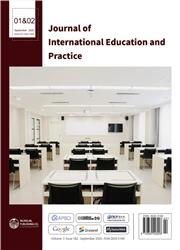Need Saliency and Academic Behavior of Technical Students in India: Implications for Career Sustaining Competences
引用次数: 0
Abstract
In the current scenario of rapid expansion of higher education, it becomes imperative to study the dynamic factors underlying quality education, student motivation and learning outcomes. Most of the literature available as on date are predominantly based on western studies, where the individual’s personal achievement, autonomy, control, power are considered to be most important. But these western models often influenced by their individualistic philosophy and cultural values are quite inapplicable for pluralistic Indian society, where we believe in collaboration and teamwork. Rare attempts have been made to develop an indigenous model to measure these attributes in our society. The present study is first of its kind to assess the salient and non-salient needs of technical students pursuing their studies in India. Authors have identified measures of the students’ engagement in various academic, co-curricular activities and their performance outcomes. A sample of Four-hundred and Sixty-five (N=465) engineering/science students were collected through purposive sampling exclusively from IIT Kharagpur , a premier technical institute in eastern India where students across the country got selected and joined on merit basis, through the national level joint entrance examination for Engineering and Science, the toughest examination in the country, known as IIT-JEE. Career implications are discussed in light of the major findings.印度技术学生的需求显著性和学术行为:对职业持续能力的影响
在当前高等教育快速扩张的情况下,研究优质教育、学生动机和学习成果背后的动态因素变得至关重要。迄今为止,大多数可用的文献主要基于西方研究,在西方研究中,个人的个人成就、自主性、控制力和权力被认为是最重要的。但这些西方模式往往受到其个人主义哲学和文化价值观的影响,不适用于多元的印度社会,在那里我们相信合作和团队合作。很少有人尝试开发一种本土模式来衡量我们社会中的这些特征。本研究首次评估了在印度学习的技术学生的显著和非显著需求。作者已经确定了衡量学生参与各种学术和课外活动及其表现结果的指标。通过有针对性的抽样,从印度东部首屈一指的技术学院印度理工学院哈拉格布尔分校(IIT Kharagpur)收集了四百六十五名(N=465)工程/科学专业学生的样本,全国各地的学生都是在该校择优录取的,称为IIT-JEE。根据主要研究结果对职业影响进行了讨论。
本文章由计算机程序翻译,如有差异,请以英文原文为准。
求助全文
约1分钟内获得全文
求助全文

 求助内容:
求助内容: 应助结果提醒方式:
应助结果提醒方式:


